Best Ways to Use Natural Loofah: Sponge & Loofah Shower
Dec. 3, 2021 | Written by Alice W
If you’ve had the same sponge for months then it is time definitely to swap and upgrade it. That’s because it is probably as dirty as a toilet brush, apart from the obvious signs of wear or tear. The best natural alternative for a plastic sponge is natural loofah sponge.
100% compostable, sustainable, and plant-based material, the natural loofah would be of great use at home. Not only will your kitchen reap the benefits of natural loofah sponge, but also your bath experience will be more enjoyable due to a natural loofah shower.
For those in the know, natural loofahs also have other purposes. Let’s go through the best ways to use natural loofahs at home.
What is a Loofah?
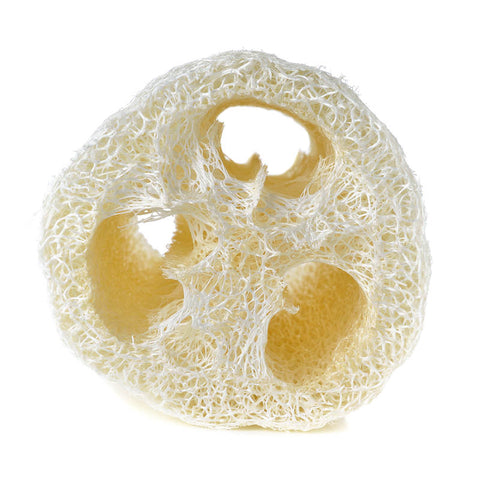
Not familiar with natural loofah yet? Let’s dive right into what it is. First of all, it is a kind of plant and gourd, shaped like cucumber, also named luffa (mostly the L. aegyptiaca specie or L. acutangular specie). Easy to care for, loofah can survive and grow in almost any warm climate. Before it is made into a sponge or scrubber, loofah is edible, and very healthy and delicious.
When the loofah is dry, the material is dense and mesh-like, and ready to make a sponge or shower. Natural loofahs, with a tough fibrous texture, latter well and are effective in cleaning and exfoliating.
What is a Natural Loofah Made Of?
By reading above, we can draw a conclusion that a natural loofah is made of a plant or a gourd --all natural materials and free of plastic.
To make a loofah sponge or shower is simple. After the luffa is harvested, leave it to wither and totally dry, then remove the outer skin, and the internal pulp is the sponge. The loofah can be sliced into any shapes and sizes you prefer, and become handy kitchen cleaning products or bath and shower scrubber appliances.
Benefits of Using Natural Loofahs
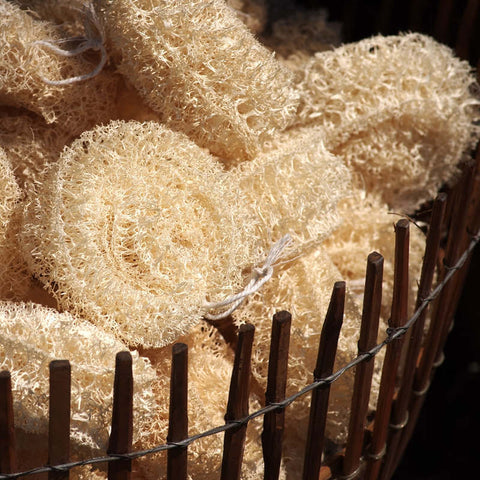
There are many good reasons why you should use natural loofahs at home.
- A natural solution for cleaning dishes, pots and kitchen utensils;
- A best alternative for washcloth or plastic bath pouf to clean and exfoliating skin;
- Effortless helpful in removing grease, stains, and dirt;
- Better than plastic to prevent dirt and bacteria, hence safer and more hygeian to skin and homeware;
- Eco-friendly products that are made from all natural plant fibers, nor plastics or synthetics;
- The materials are compostable, biodegradable, and earth friendly;
- Functional, versatile, and inexpensive.
Use Natural Loofah Sponge in the kitchen
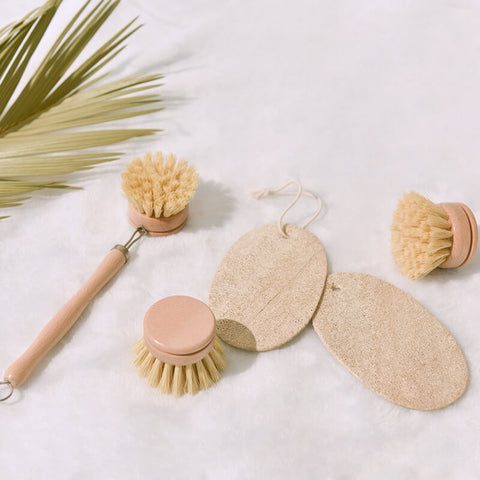
The best possible sponge you could buy is natural loofah. Natural loofah sponge is a must in your ECO kitchen kit to replace the traditional plastic sponge, especially if you’re on your way to build a zero-waste kitchen.
A very small step to protect the earth, using loofah sponge can help effectively cleaning all your kitchen utensils, from dishes to pans. While a loofah sponge is powerful in removing grease and tough spot, it is very gentle on any surface, without leaving any scratching. Besides that, a loofah sponge can also be used to clean sinks, tubs, countertops, and stovetop.
One of the most sanitary way cleaning dishes that help you to eat healthier, a natural loofah is suggested to be swapped to a new one every two to three months if you use it frequently, in case of any bacteria and dirt that are bad for health.
It is also worth us mentioning that a natural loofah sponge, after it is worn out, can be composted or simply buried in your garden, instead of being sent to the landfill. Zero wasted is promised.
Natural Loofah Sponge VS Traditional Sponge
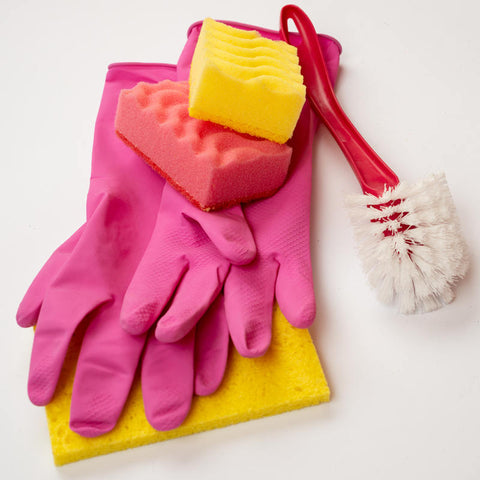
Although designed for the same purpose -- cleaning dishes, a natural loofah sponge is different from a traditional kitchen sponge. Visually, traditional sponges, always orange or green, come with a wide range of bright colors. A natural loofah sponge is often simply off-white.
Natural loofah sponge, on the other hand, are made of from a gourd belonging to genus Luffa, different from the sponge and those made from plastic or synthetic materials.
A natural loofah is more sustainable and environmentally friendly than a traditional sponge, moreover, it does a better job in cleaning, especially for removing tough stains and much grease. Besides that, a natural loofah stands up longer to bacteria and mould.
The myriad benefits of natural loofah sponge make them great alternatives to plastic or synthetical kitchen sponges.
Use Natural Loofah in the Bathroom
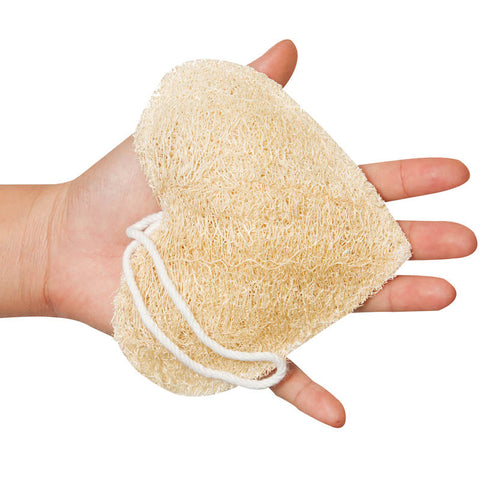
Natural loofahs are also commonly used in the bathroom. Softens it with lukewarm water, and simply apply shower gel to the natural loofah just as you do on a bath pouf, the natural loofah will lather up, and clean and scrub your skin.
Use natural loofah as a body scrubber and massager to exfoliate the dead skin cells accumulated on your skin, accelerate blood circulation and lymphatic flow, and promote detoxification. It is suggested to use natural loofah shower on a daily basis as so as to effectively remove excessive oil, dredge pores, prevent pore blockage, nourish skin, and help prevent skin diseases.
When it comes to the skincare in the bath, apart from the natural loofah, the body shower brushes for both wet and drying brushing can do a much better job, but also more expensive.
Natural Loofah Shower VS Washcloth VS Bath Pouf
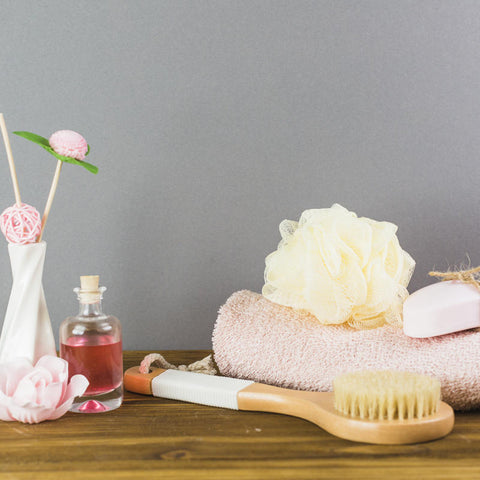
Most of us take a bath or shower every day, making the choices of shower accessories important and urgent. Should we use a natural loofah shower, a bath pouf or a washcloth? The answer is definitely natural loofah.
On one hand, a natural loofah is more efficient in cleaning and exfoliating while also being gentle and safe to your skin. One the other hand, it is better than washcloth and plastic bath pouf in personal hygiene. It has been scientifically proved that washcloth and plastic bath pouf placed in a damp and warm environment are prone to bacteria buildup, which may cause skin irritation, inflammation, and other problems. Natural loofah showers are great alternatives to them. Because ultimately, natural loofah showers are plants, they help fend off bacterial invaders for a longer period.
An additional reason why using natural loofahs over washcloth or synthetical pouf is that they are made of sustainable, environmentally friendly plant-based resources, coinciding with our dream of a zero-waste, green life.
Other Uses of Natural Loofah at Home
- Facial cleaning: Natural loofah after being boiled and sterilized, can be used to wash face, ideal for exfoliating, oil control, thorough cleaning, and acne treatment.
- For indoor plants/flower: Keep applying fertilizer on your plant for a long time can result in dry and stiff soil, which is bad for the growth of flower plants. Natural loofah features mesh texture, loose and breathable, great for water draining. So it's a good idea to put a natural loofah under the planter, or just wrap it around a flowerpot. In addition, natural loofah also serves to keep warm, and helps flowers live through the cold winter safely.
How to Clean Natural Loofahs
It is also important to know how to keep your natural loofahs clean and last as long as possible. Use soap or cleaning gel and water to clean a natural loofah sponge or shower, rinse it out, and hang it to hair dry. One thing to always keep in mind, make sure it is dry between each use, to prevent bacterial growth.
Getting Eco-Friendly with GreenLiving’s Loofah and Other ECO Products
Thanks for the rising eco awareness, many think it is time to change our cleaning habits by using plastics that won’t degrade. At GreenLiving, we have a series of affordable ECO cleaning products for both your kitchen and bathroom. In addition to loofah sponge, you can also find natural bristle dish brushes, fruit brushes, wooden shower brushes, body scrubbers, and facial cleaning brush. You can also check out 7 Natural Cleaning Brush Swaps Will Help You Live a Green Life.

